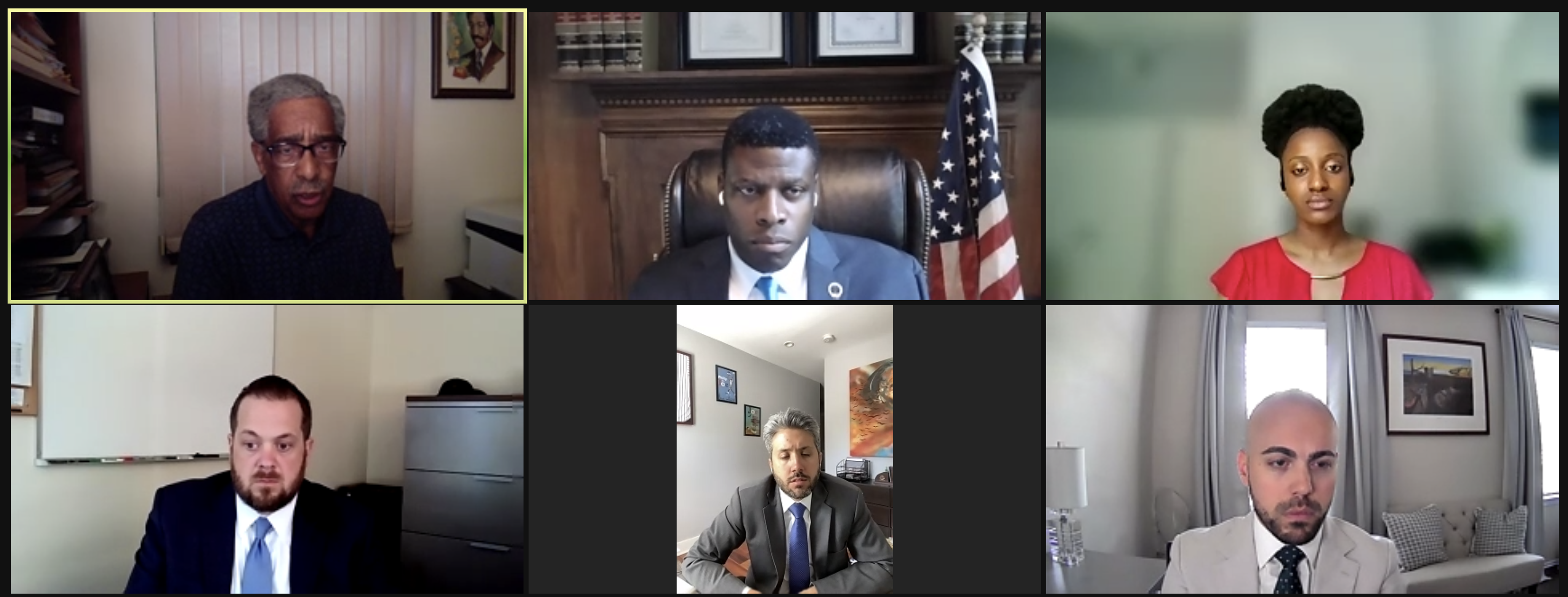 With cannabis legalization in the law books, there is widespread interest in better understanding what the industry will look like in the Garden State. On Wednesday morning, the Minorities in the Profession Section of the NJSBA organized an Annual Meeting panel discussion on the prospective impact of New Jersey’s “groundbreaking” marijuana legalization on New Jersey’s communities of color.
With cannabis legalization in the law books, there is widespread interest in better understanding what the industry will look like in the Garden State. On Wednesday morning, the Minorities in the Profession Section of the NJSBA organized an Annual Meeting panel discussion on the prospective impact of New Jersey’s “groundbreaking” marijuana legalization on New Jersey’s communities of color.
The panel was moderated by Bergen County Assistant Prosecutor Ron T. McCormick and MIPS Secretary Danielle Counts. Speakers included state Sen. Ronald L. Rice, Guillermo C. Artiles of McCarter and English, New Jersey Cannabis Regulatory Commission Chair Dianna Houenou, Ryan Magee from Riker Danzig, and Special Deputy Attorney General and Morris County Acting Chief Assistant Prosecutor Bradford C. Seabury.
“There is a lot of hard work that lies ahead and the road forward is far from clear,” McCormick said in opening the program.
Supporters of legalization have said that New Jersey’s cannabis law includes many provisions for equity and social justice, calling it one of the most progressive laws in the country when it comes to these issues.
Dianna Houenou, chair of the one-month-old Cannabis Regulatory Commission, noted that equity was an important part of the law and would be very important as the Commission is writing regulations. She noted the agency was having public hearings and spending hours talking to communities about these very issues.
“I do often hear questions about how people of color can participate when start-up costs can be really high,” she said. She noted that there were options for micro-businesses that the Commission could accommodate with simplified application requirements and opportunities for ancillary businesses as well. She urged the public to visit the Commission’s website for upcoming public hearings.
Sen. Ron Rice, who was a vocal opponent of marijuana legalization over several years of negotiations at the statehouse, noted that many of the social justice provisions in the bill would not exist “If it were not for the Black and Latino caucus standing up and being adamant.”
The key, he said, is to make sure those provisions were adhered to. “Enforcement is going to be very important.” He also predicted that there would be more pushback against those provisions from people in public office.
“As lawyers and law firms, those of you who are not concerned about just making money, but those of you who still represent minority children or people...pay attention to the pushback.”
Editor’s note: This excellent Annual Meeting program this morning was hampered by a technical error that capped the capacity of the Zoom webinar room and prevented many Annual Meeting registrants from being able to attend. We deeply regret the error and are taking steps additional to ensure that the program is available to as wide an audience as possible.